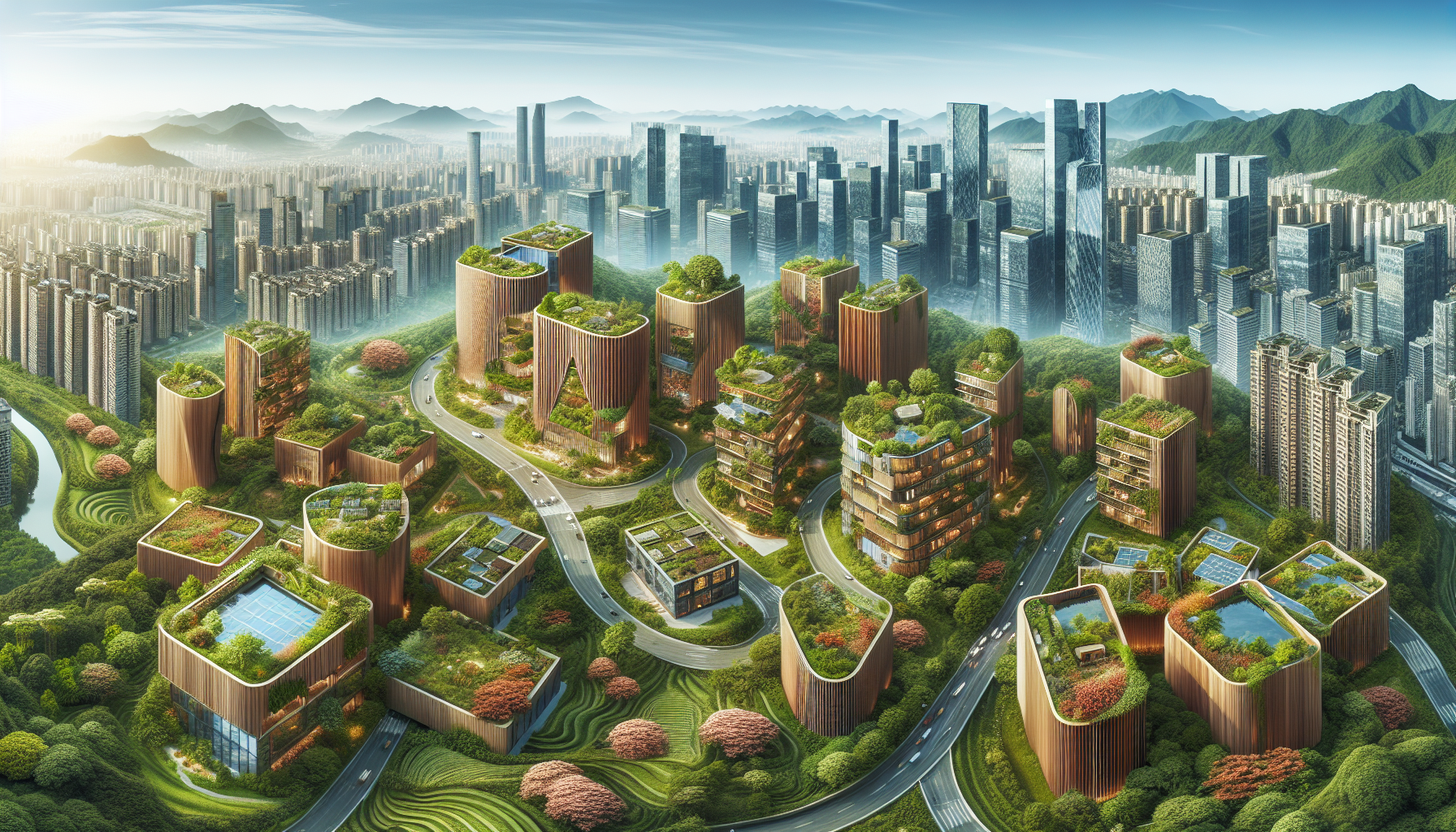The COPADE Foundation showcases the benefits of using Fair Trade Wood through WoodLife in the building construction sector: it reduces carbon footprint, minimizes waste with its biodegradability and recycling, and it’s versatile and durable. COPADE has given a new boost to the world’s most sustainable wood by signing an agreement with sAtt to implement architectural products, promoting fairer and more sustainable construction.
The construction sector faces one of its biggest challenges due to the global climate crisis. This industry, known for its high production of concrete, is one of the main sources of carbon dioxide emissions in the atmosphere. Moreover, replacing more sustainable and environmentally friendly materials like wood with concrete and steel has reduced future opportunities for thousands of forest towns in the country, putting Spain’s forests in an unprecedented vulnerable situation.
Furthermore, the European Union has recently posed a new challenge for this industry: from 2030, all new buildings will have to produce zero pollutant emissions, in accordance with the recent Directive agreed by the European Parliament and the EU member states on energy efficiency in buildings.
In this context, the COPADE Foundation, committed to Fair Trade, Responsible Consumption, and the preservation of the Environment, has promoted WoodLife Company, a leader in the timber trade that meets the highest environmental and sustainable economy standards through the FSC® certification, the highest social standards and responsible consumption through the Fair Wood® seal, and the ASG Footprint – Sustainable Performance measurement that evaluates the product’s value chain through Governance, as well as the social and environmental impacts generated.
The use of wood in construction, in addition to having a low environmental impact, contributes to the reduction of carbon emissions, sequestering carbon during the life of the building, positioning itself as the construction material of the 21st century.
The COPADE Foundation highlights the following benefits of using wood in the construction sector:
1. All wood marketed in WoodLife comes with double certification: FSC® and Fair Wood®. The latter, the only Fair Trade seal for the timber sector, ensures that forestry workers receive a fair salary and work in safe and healthy conditions.
2. The Foundation measures the sustainable performance of suppliers through its ASG Footprint tool. This means they only work with suppliers committed to social and environmental sustainability and good governance.
3. Renewable natural resource. Tropical wood comes from the Maya Biosphere Reserve, where extraction is limited to one tree per acre with a 40-year cutting cycle, ensuring forest regeneration, community survival, and the conservation of natural heritage. In turn, Pinewood comes from the Universal Mountains, in Europe’s depopulation zero zone (provinces such as Cuenca, Guadalajara, and Teruel) and aims to invigorate this territory with job opportunities in a unique environment and with wood with the highest standards of quality, social, and environmental.
4. Reduction of the carbon footprint during the construction process.
5. Minimal generation of waste and full use of raw material, thanks to its biodegradability and recycling capacity.
6. Ease of handling with simple tools and low energy consumption.
7. Versatility and resistance that allow its use in a wide range of construction applications, both structural and decorative.
WoodLife markets high-quality, sustainable, and ethically produced wood, ideal for use in building outdoor spaces that promote beauty and environmental sustainability, as a structural building element.
The wood used mainly comes from the forests of Guatemala, where low-intensity cutting practices allow the natural regeneration of the forest mass and ensure long-term sustainability.
COPADE focuses on the Southern Iberian System, including the regions of Alto Tajo, the Serranía de Cuenca, and the Universal Mountains, where it previously led the PRORURAL operational group. This group determined in the laboratory the excellent quality of the wood in the area and generated a layer of territorial quality with a resolution of 10×10 meters. Thanks to this quality, the wood from these regions is ideal for both interior finishes and the construction of structures.
COPADE has recently signed a collaboration agreement with sAtt, an architecture firm committed to sustainability to use Fair Trade wood in their construction projects.
Both entities share a commitment to sustainable and respectable construction. This agreement aims to consolidate an ecosystem of collaborators and professionals who are committed to a fairer and more sustainable wood industry.
For Iñaki Alonso, CEO of sAtt, “sustainability in architecture should encompass all elements of the chain and not be limited to its technical aspects. This is what is called the Triple Balance: the balance between ecological, social, and economic dimensions that is sought in all COPADE projects.” Javier Fernández, general director of the COPADE Foundation, states, “this is an important step to promote the use of sustainable and fair trade wood in construction.”










